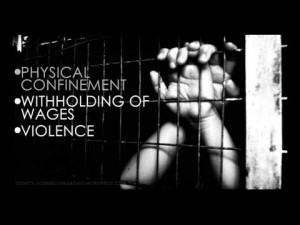Trafficking in forced labor is a huge issue that is too often overlooked by an even similar horror of sex trafficking. In 2012, the International Labor Organizational, (ILO) estimated that there were 14.2 million victims of forced labor in comparison to the 4.5 million victims of sexual exploitation. An example of a group highly susceptible to being targeted into forced labor is migrant workers but these stories are rarely covered in the media.
The United Arab Emirates (UAE) is one nation plagued with abuse of trafficking in forced labor. While the UAE does consider forced labor a crime, its anti-trafficking efforts of shelters and media campaigns are directed predominately at sex trafficking.
The UAE has an estimated 7.3 million migrant workers in the country creating a necessity for immigration policies and labor laws to protect these workers rights and to reduce trafficking. The UAE has a visa sponsorship system that has guidelines for forced labor but it explicitly excludes migrant workers. This sponsorship program known as kafala, matches domestic workers to individual employers and the workers cannot move to another job without their employers consent. This system creates trafficking because of the deceptive recruitment practices, exploitation in working conditions, and employers are known to steal the workers passports.
Human Rights Watch interviewed 99 domestic workers in the UAE, some of whom were trafficked, with women reporting numerous abuses such as recruiters making false promises or not paying wages on time. In addition, many employees took these women’s passports and wouldn’t let them leave the homes where they worked. Many women reported instances of psychological, physical, and even sexual abuse along with reports of being deprived of food and water.
This type of treatment towards workers is startling as workers should not be deprived of basic human rights such as having safe working conditions, livable wages, as well as simply being given food and water. In 2014 the UAE elected to the International Labor Organization’s Governing Body and is a donor to the U.N. anti-trafficking initiative so it needs to strive to make working conditions better for its citizens.
Human Rights Watch recommends that the UAE ratify its global treaties, do away with its sponsorship program, and adopt a law on domestic worker rights. How do you think we can spread awareness for trafficking in forced labor? Why do you think trafficking in forced labor does not make the headlines as often as sex trafficking?
Source: Human Rights Watch

I agree with the Human Rights Watch’s recommendations 100 percent. The UAE needs to ratify its global treaties, do way with its sponsorship program, and adopt a law on domestic worker rights. Since the sponsorship program creates trafficking it needs to be replaced with a law on domestic worker rights. This program should be eliminated as soon as possible because it violates an individual’s basic human rights. This treatment towards workers should not be tolerated.
According to the Human Rights Watch domestic workers in the UAE, “many employees took these women’s passports and wouldn’t let them leave the homes where they worked. Many women reported instances of psychological, physical, and even sexual abuse along with reports of being deprived of food and water.” This type of treatment cannot be tolerated and something needs to be done to protect these individuals. I think we can spread the awareness for trafficking in forced labor by trying to educate the public by writing about the topic more. The more people we have to write about the topic the more the message will get around.